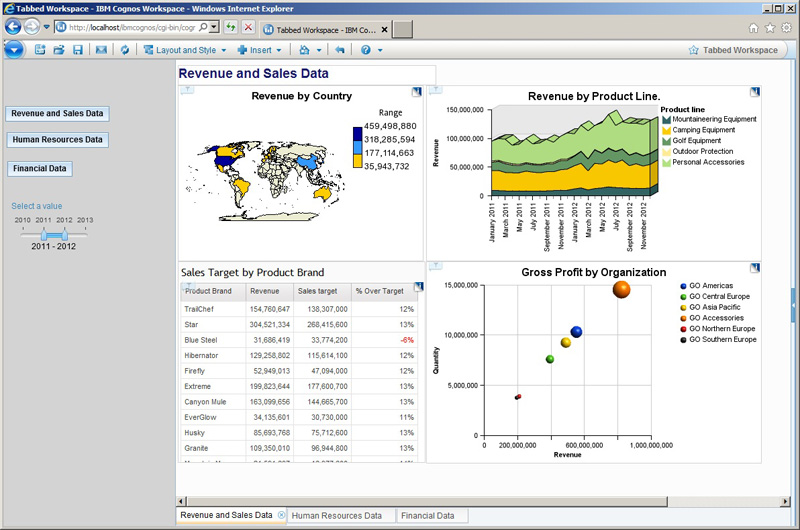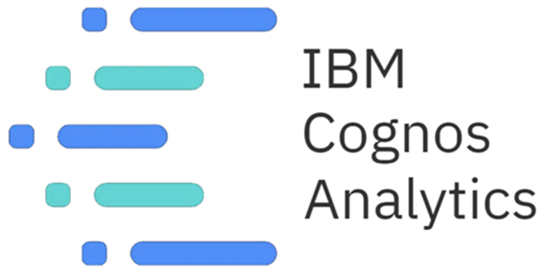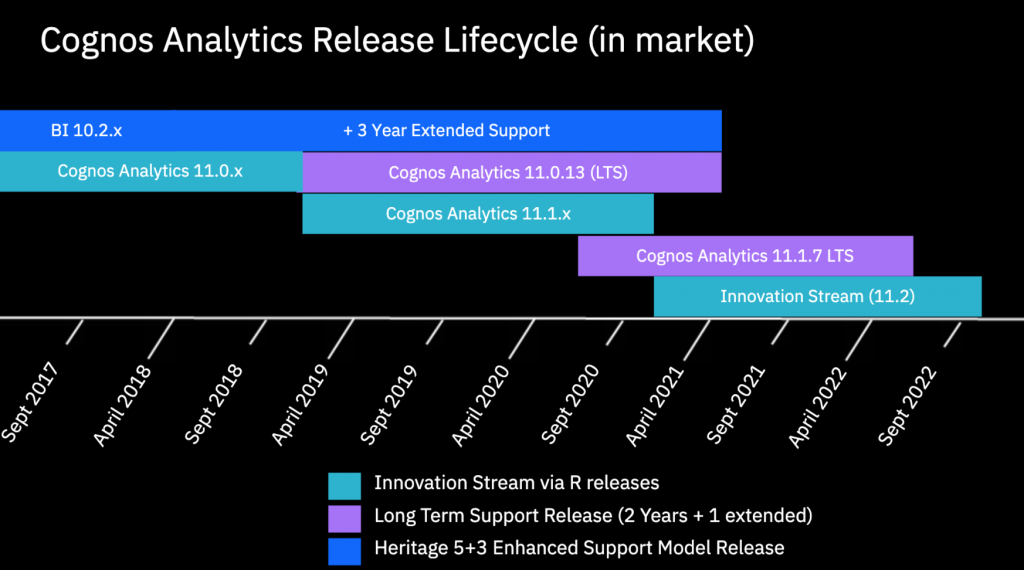P1]
In today’s data-driven world, organizations of all sizes are grappling with the challenge of extracting meaningful insights from vast amounts of information. IBM Cognos stands as a powerful and versatile business intelligence (BI) and performance management platform, designed to help businesses analyze data, identify trends, and make informed decisions that drive success. This article delves into the core functionalities of Cognos, exploring its architecture, key features, benefits, and how it empowers organizations to achieve their strategic objectives.
What is IBM Cognos?
IBM Cognos is a comprehensive suite of software designed to provide business intelligence, performance management, and advanced analytics capabilities. It allows users to collect, analyze, and visualize data from various sources, transforming raw information into actionable insights. By providing a unified platform for reporting, analysis, planning, and forecasting, Cognos enables organizations to gain a 360-degree view of their business, optimize performance, and improve decision-making across all levels.
Key Components of the IBM Cognos Platform:
The IBM Cognos platform is comprised of several key components that work together to deliver a comprehensive BI solution:
Cognos Analytics: This is the core of the platform, providing self-service BI capabilities for data exploration, analysis, and visualization. Users can create interactive dashboards, reports, and visualizations to uncover trends, patterns, and anomalies in their data.

Cognos TM1 (Planning Analytics): This module focuses on planning, budgeting, forecasting, and financial consolidation. It allows organizations to create dynamic models, simulate scenarios, and collaborate on financial plans.
Cognos Controller: This component provides financial consolidation and reporting capabilities, ensuring accuracy and compliance with regulatory requirements.
Cognos Metric Studio: This module allows organizations to track and monitor key performance indicators (KPIs) and metrics, providing a clear view of business performance against strategic goals.
Cognos Event Studio: This component enables proactive monitoring of business events and triggers automated actions based on predefined rules.

Cognos Mobile: This component provides access to Cognos reports and dashboards on mobile devices, enabling users to stay informed and make decisions on the go.

Architecture of IBM Cognos:
The architecture of IBM Cognos is designed to be scalable, flexible, and secure. It typically consists of the following layers:
Data Sources: Cognos can connect to a wide range of data sources, including relational databases (e.g., Oracle, SQL Server, DB2), data warehouses, cloud platforms (e.g., AWS, Azure, Google Cloud), and flat files.
Metadata Layer: This layer defines the structure and relationships of the data, providing a consistent and user-friendly view for analysis and reporting. It includes metadata models, dimensions, and hierarchies.
Query Engine: The query engine optimizes and executes queries against the data sources, retrieving the necessary data for analysis and reporting.
Presentation Layer: This layer provides the user interface for accessing and interacting with the data. It includes tools for creating reports, dashboards, and visualizations.
Security Layer: The security layer controls access to data and functionality based on user roles and permissions, ensuring data privacy and compliance.
Key Features and Benefits of IBM Cognos:
IBM Cognos offers a wide range of features and benefits that can help organizations improve their business performance:
Self-Service BI: Cognos Analytics empowers users to explore data, create reports, and build dashboards without requiring extensive technical skills. This enables faster insights and reduces the reliance on IT departments.
Advanced Analytics: Cognos provides advanced analytics capabilities, including predictive modeling, data mining, and statistical analysis. These tools help organizations identify trends, predict future outcomes, and make data-driven decisions.
Interactive Dashboards and Visualizations: Cognos allows users to create interactive dashboards and visualizations that provide a clear and concise view of key business metrics. These dashboards can be customized to meet the specific needs of different users and departments.
Planning, Budgeting, and Forecasting: Cognos TM1 enables organizations to create dynamic models, simulate scenarios, and collaborate on financial plans. This helps improve accuracy, reduce errors, and streamline the planning process.
Financial Consolidation and Reporting: Cognos Controller provides financial consolidation and reporting capabilities, ensuring accuracy and compliance with regulatory requirements. This helps organizations streamline their financial processes and improve the quality of their financial data.
Mobile BI: Cognos Mobile provides access to reports and dashboards on mobile devices, enabling users to stay informed and make decisions on the go.
Scalability and Performance: Cognos is designed to handle large volumes of data and support a large number of users. It provides scalability and performance to meet the growing needs of organizations.
Security and Compliance: Cognos provides robust security features to protect data and ensure compliance with regulatory requirements.
Integration with Other Systems: Cognos can integrate with a wide range of other systems, including ERP systems, CRM systems, and data warehouses. This allows organizations to leverage their existing investments and create a unified view of their business.
How IBM Cognos Empowers Organizations:
IBM Cognos empowers organizations in several key ways:
Improved Decision-Making: By providing access to timely and accurate information, Cognos helps organizations make better informed decisions.
Enhanced Business Performance: By tracking and monitoring KPIs, Cognos helps organizations identify areas for improvement and optimize their business performance.
Increased Efficiency: By automating reporting and analysis tasks, Cognos helps organizations increase efficiency and reduce costs.
Better Collaboration: Cognos enables collaboration across departments and teams, fostering a shared understanding of business performance.
Competitive Advantage: By leveraging data to gain insights and make better decisions, Cognos helps organizations gain a competitive advantage.
Use Cases of IBM Cognos:
IBM Cognos is used in a wide range of industries and applications, including:
Financial Services: For financial planning, budgeting, forecasting, and regulatory reporting.
Retail: For sales analysis, inventory management, and customer segmentation.
Healthcare: For patient analytics, clinical performance monitoring, and resource optimization.
Manufacturing: For supply chain management, production planning, and quality control.
Government: For performance management, budget analysis, and citizen engagement.
Challenges and Considerations:
While IBM Cognos offers numerous benefits, organizations should also be aware of potential challenges:
Implementation Complexity: Implementing Cognos can be complex and require specialized expertise.
Cost: The cost of Cognos licenses and implementation services can be significant.
Data Governance: Effective data governance is crucial for ensuring the accuracy and reliability of the data used in Cognos.
User Training: Proper user training is essential for maximizing the value of Cognos.
Integration Challenges: Integrating Cognos with other systems can be complex and require careful planning.
Future Trends in IBM Cognos:
IBM continues to invest in Cognos, focusing on areas such as:
Artificial Intelligence (AI) and Machine Learning (ML): Integrating AI and ML capabilities to automate data analysis and provide predictive insights.
Cloud Adoption: Enhancing the cloud-based capabilities of Cognos to provide greater flexibility and scalability.
Augmented Analytics: Providing augmented analytics capabilities to help users discover insights and make better decisions.
Natural Language Processing (NLP): Integrating NLP to allow users to interact with Cognos using natural language.
FAQ:
What are the system requirements for IBM Cognos?
- The system requirements vary depending on the specific components and version of Cognos. Refer to the IBM Cognos documentation for detailed system requirements.
What types of data sources can Cognos connect to?
- Cognos can connect to a wide range of data sources, including relational databases (e.g., Oracle, SQL Server, DB2), data warehouses, cloud platforms (e.g., AWS, Azure, Google Cloud), and flat files.
Is IBM Cognos a cloud-based solution?
- Yes, IBM Cognos offers both on-premises and cloud-based deployment options. Cognos Analytics on Cloud provides a fully managed cloud service.
How much does IBM Cognos cost?
- The cost of IBM Cognos varies depending on the specific components, deployment options, and number of users. Contact IBM or a certified partner for pricing information.
What training resources are available for IBM Cognos?
- IBM offers a variety of training resources for Cognos, including online courses, classroom training, and self-study materials.
How does Cognos handle data security?
- Cognos provides robust security features, including user authentication, access control, and data encryption, to protect data and ensure compliance with regulatory requirements.
Conclusion:
IBM Cognos is a powerful and comprehensive business intelligence and performance management platform that empowers organizations to analyze data, identify trends, and make informed decisions. By providing a unified platform for reporting, analysis, planning, and forecasting, Cognos enables organizations to gain a 360-degree view of their business, optimize performance, and improve decision-making across all levels. While implementation and cost can be considerations, the benefits of Cognos, including improved decision-making, enhanced business performance, and increased efficiency, make it a valuable asset for organizations seeking to leverage data to achieve their strategic objectives. As IBM continues to invest in Cognos, focusing on areas such as AI, cloud adoption, and augmented analytics, the platform will continue to evolve and provide even greater value to its users in the future.



Leave a Reply